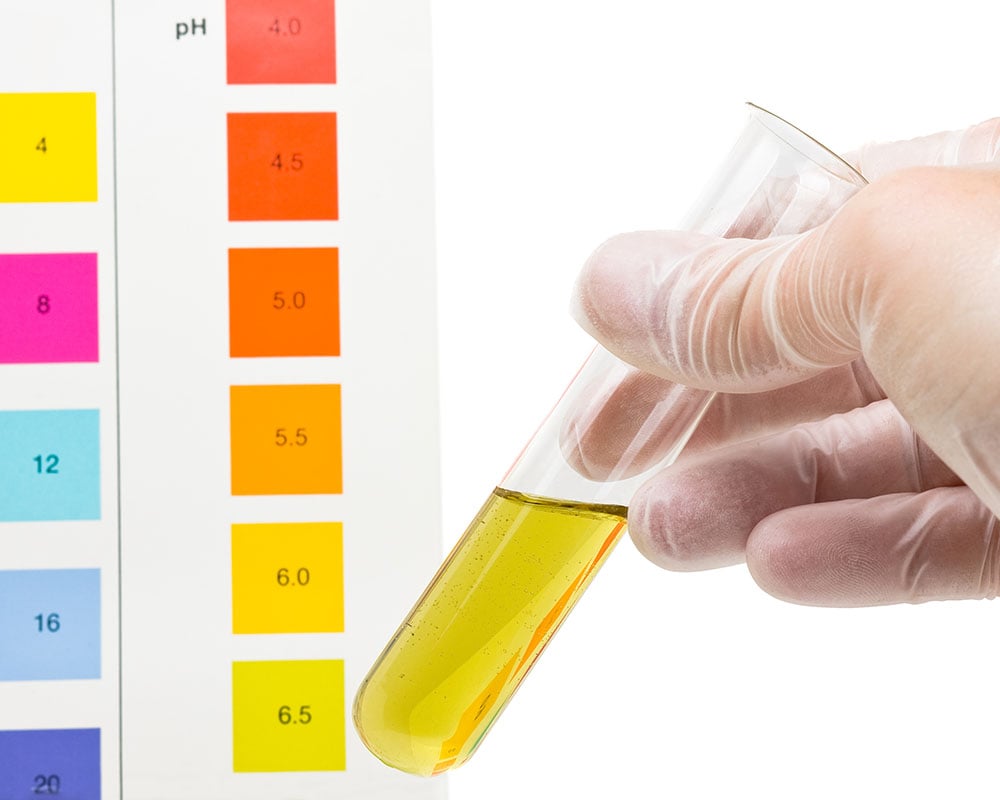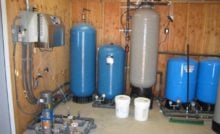Podcast Q & A 1: Do you recommend a do-it-yourself test kit, we do ourselves, or a laboratory test?


Podcast: Play in new window | Download
Subscribe: RSS
Hello! Welcome to the Clean Water Made Easy Podcast, Q&A Episode #1.
Hey, my name is Gerry Bulfin. I’m a WQA-Certified Water Master Specialist and Water Treatment Contractor here in lovely Santa Cruz, California. Today's question comes from Sally and she asks, “We recently moved into a home on well water and we’d like to get the water tested. Do you recommend a do-it-yourself test kit that we do ourselves, or a laboratory test?” She also said, “Can you send me more information on your well water test kits?”
Hi Sally, thanks for asking about this. This is actually very important. You know, since you’re new to the well, the EPA and we, and most water professionals, would say, “You should get a complete laboratory test at least once because you want to rule out any problems of contamination such as heavy metals, pesticides, herbicides, and other chemicals”.
The do-it-yourself test kits will not test for most of these things. Well, you can test for a pesticide, do-it-yourself, but it’s just one pesticide that it tests for. It doesn’t cover a lot of different kinds and it doesn’t tell you how much there is. It just tells you if it’s there or not. So, at least once is a good idea to get a complete laboratory test to see if there are any heavy metals such as arsenic, lead and, then general mineral analysis and test for bacteria, nitrate and all the pesticides and herbicides.
Years ago when we first started testing folks’ waters, the pesticide, herbicide, and chemicals tests were very expensive. A lot of folks spent a thousand dollars for all the different tests. Now the price had really dropped. There are different labs that have automated the procedure and you can get quite a number of tests done, like 80 to a 100 different parameters tested for between a $150 and $200. It’s at least a good idea to consider getting a test done and the other thing is that it’s important to consider where your home is at.
Are you in the middle of agriculture area, near a farm where lots of corn or wheat is grown, or an area where they use an intensive pesticides or herbicides? That’d be a good reason to consider laboratory tests. Is your well properly drilled, is it a normal well with a submersible pump and a standard deep well drilled? Or is it a shallow, old well that might be under the influence of water from the surface?
These are all the things to consider when you’re considering why you’re getting your test done. It’s just for peace of mind when you’re new to it; or something has changed.. Also if whether there has been hydro-fracking in the area. In industries, there's a lot going on where they’re extracting oil and gas. People in these areas have their concerns and so they might want to have their water tested periodically, say yearly, in a lab.
We have a lot of customers that don’t have any of these problems; but they do have iron in their water.They see rust staining. They have hard water, and they see white deposits, or maybe there is corrosion going on. They see blue stains from their copper piping, or maybe they have clogged pipes with sediment. They want to figure out what’s going on. You could start with that. You could actually use a do-it-yourself test kit because do-it-yourself test kit can tell you the basic general minerals that you have in order to figure out what kind of filter to use.
A typical home do-it-yourself test kit would test for alkalinity, copper, hardness, hydrogen sulfide, iron, manganese, iron and nitrate, nitrite, pH, sulfate and total dissolved solids. It’s all good things to test for if you’re getting a do-it-yourself test kit and are after non-health threatening, even though nitrate is a health threat but you could just see what it come up with in the test kit. I would still recommend a laboratory test for the nitrate especially if you’re new to the well because that is a health threat, especially for infants.
That’s basically it. If you want to also do a testing for bacteria, you can get a home test kit for bacteria. Those tests have improved a lot and though they don't tell you how much bacteria, the test will tell you if it’s there or not, which is a good place to start.
A lot of times folks will say “Yeah, I’m getting stains, I have copper stains or I have corrosion.” Well, then, you’d want to test for lead, copper, pH, alkalinity, total dissolved solids, hardness, and temperature. So those are things you could also do with a home test kit.
The other thing to consider is that every year, this is also recommended by health departments, the EPA, and the World Health Organization, you want to test your well for nitrate and coliform bacteria. Those are the two things that is a good idea to get your well tested once a year. Just to see if anything has changed.
We also recommend, which is a very, very cheap and easy to do yourself, is to get your water tested for total dissolved solids and get a total dissolved solids, TDS tester, and just check your well. Check your well for pH and total dissolved solids. Let’s say test it once a year and then you can spot changes. Maybe there’s something going on, your total dissolved solids are increasing or your pH changes and it can give you kind of a clue if anything is going on in your groundwater.
Hey! I hope that answered your question.
Do you have a question that you like to answer? If you do, then set up an easy way to do it just go to cleanwaterstore.com/blog and you’ll see there on the right blue button that says “leave a message” and you could just click on that and leave me a voicemail and I’ll answer your question properly.
Well, thanks for reading, I hope you have a good day!
For further reading: Well water testing
Recent Posts
U.S. Water Problems by Region: Common Contaminants & Solutions
Curious about U.S. water problems by region? Water quality isn’t just a national issue—it’s a…
Wildfire Water Contamination: How to Ensure Safe Water After a Fire
Wildfire Water Contamination: What You Need to Know After the Fires Wildfire water contamination poses…
Clean Water For Pickles: The Secret Ingredient
Using clean water for pickles is not just a best practice—it’s crucial for achieving great…
How to Test and Remove Manganese in Well Water: A Complete Guide
If you rely on a well for your home’s water supply, you might have encountered…
Effects of Chlorine and Hard Water on Skin: Top Skin Problems and Solutions
Effects of Chlorine and Hard Water on Skin: Top Skin Problems and Solutions Have you…
How Whole House Water Filters Keep Your Family Safe: A Mom’s Guide
When creating a safe and healthy environment at home, clean water is essential—especially for moms…

